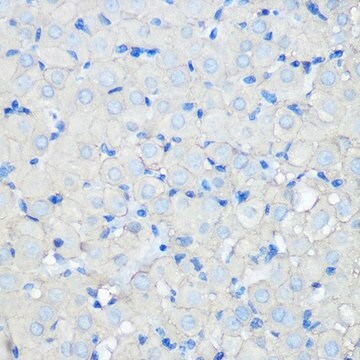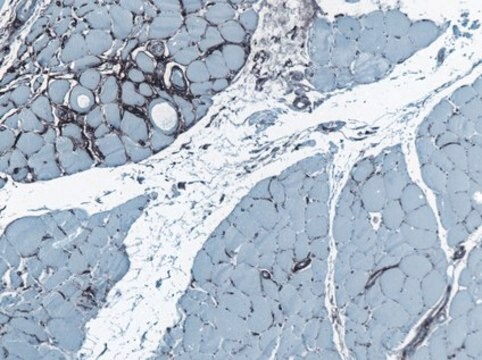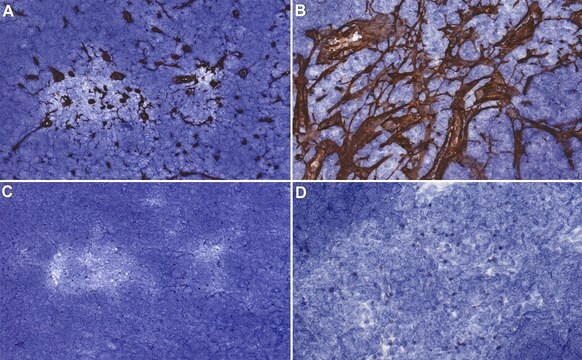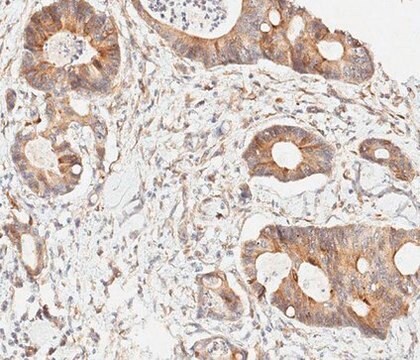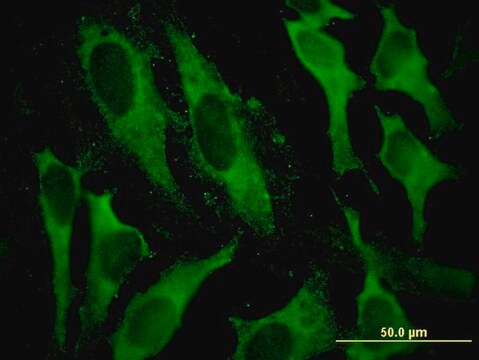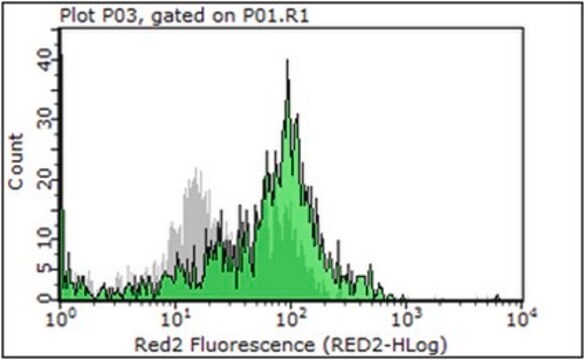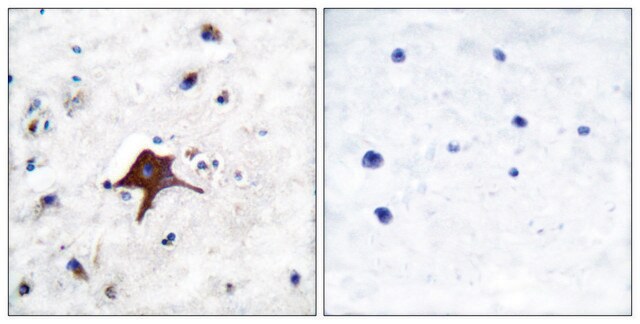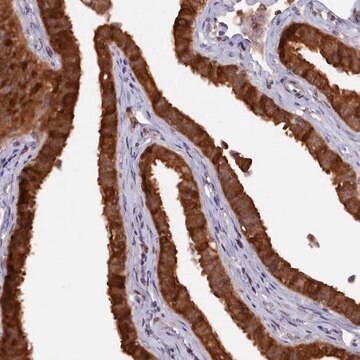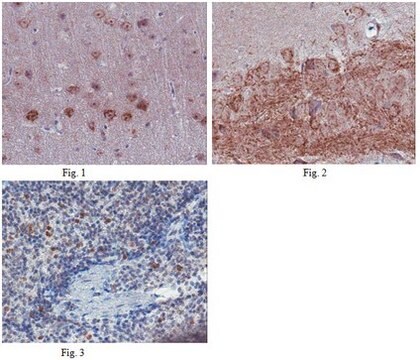MABS1283
Anti-MLN64/STARD3 Antibody, clone 2BE-2F4
ascites fluid, clone 2BE-2F4, from mouse
Synonyme(s) :
StAR-related lipid transfer protein 3, MLN64/STARD3, Metastatic lymph node gene 64 protein, MLN 64, Protein CAB1, START domain-containing protein 3, StARD3
About This Item
Produits recommandés
Source biologique
mouse
Niveau de qualité
Forme d'anticorps
ascites fluid
Type de produit anticorps
primary antibodies
Clone
2BE-2F4, monoclonal
Espèces réactives
human
Technique(s)
electron microscopy: suitable
immunocytochemistry: suitable
immunohistochemistry: suitable
western blot: suitable
Isotype
IgG1κ
Numéro d'accès NCBI
Numéro d'accès UniProt
Conditions d'expédition
dry ice
Modification post-traductionnelle de la cible
unmodified
Informations sur le gène
human ... STARD3(10948)
Description générale
Immunogène
Application
Immunocytochemistry Analysis: A representative lot detected MLN64/STARD3 in BT-474, MCF7, and transfected COS-1 cells (Lutz-Moog, C., et al. (1997). Int. J. Cancer. 71:183-191).
Immunohistochemistry Analysis: A representative lot detected MLN64/STARD3 in human breast tissue (Lutz-Moog, C., et al. (1997). Int. J. Cancer. 71:183-191).
Electron Microscopy Analysis: A representative lot detected MLN64/STARD3 in HeLa cells (Holtta-Vuori, M., et al. (2005). Molecular Biology of the Cell. 16:3873-3886).
Western Blotting Analysis: A representative lot detected MLN64/STARD3 in COS-1 cell lysate (Watari, H., et al. (1997). Proc. Natl. Acad. Sci. USA. 94:8462-8467).
Western Blotting Analysis: A representative lot detected MLN64/STARD3 in various human cell lines (Lutz-Moog, C., et al. (1997). Int. J. Cancer. 71:183-191).
Signaling
Signaling Neuroscience
Qualité
Western Blotting Analysis: A 1:2,000 dilution of this antibody detected MLN64/STARD3 in 10 µg of SK-OV-3 cell lysate.
Description de la cible
Forme physique
Stockage et stabilité
Handling Recommendations: Upon receipt and prior to removing the cap, centrifuge the vial and gently mix the solution. Aliquot into microcentrifuge tubes and store at -20°C. Avoid repeated freeze/thaw cycles, which may damage IgG and affect product performance.
Autres remarques
Clause de non-responsabilité
Vous ne trouvez pas le bon produit ?
Essayez notre Outil de sélection de produits.
Code de la classe de stockage
12 - Non Combustible Liquids
Classe de danger pour l'eau (WGK)
nwg
Point d'éclair (°F)
Not applicable
Point d'éclair (°C)
Not applicable
Certificats d'analyse (COA)
Recherchez un Certificats d'analyse (COA) en saisissant le numéro de lot du produit. Les numéros de lot figurent sur l'étiquette du produit après les mots "Lot" ou "Batch".
Déjà en possession de ce produit ?
Retrouvez la documentation relative aux produits que vous avez récemment achetés dans la Bibliothèque de documents.
Notre équipe de scientifiques dispose d'une expérience dans tous les secteurs de la recherche, notamment en sciences de la vie, science des matériaux, synthèse chimique, chromatographie, analyse et dans de nombreux autres domaines..
Contacter notre Service technique